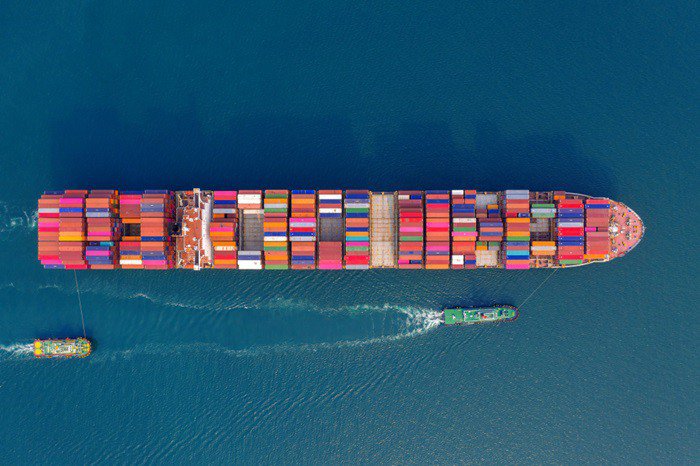
India and Africa have had long-standing and beneficial relationships in various areas, including trade and commerce. Ocean freight has emerged as a crucial mode of transportation between these regions, with the Indian subcontinent acting as a hub for manufacturing and exports and Africa emerging as a promising market for goods and commodities.
This article examines the compliance and documentation needs for ocean freight shipments between India and Africa, highlighting the important factors and procedures involved.
Understanding the India-Africa Ocean Freight Route
Trade between the two continents depends heavily on the ocean freight route that runs between India and Africa. A number of Indian ports, including those in Mumbai, Chennai, and Kolkata, serve as important hubs for exports to a number of African nations, including South Africa, Kenya, Nigeria, and Tanzania. This route for sea shipping provides an economical and effective way to move goods and commodities over great distances.
Compliance Considerations for India-Africa Ocean Freight
Compliance is essential for ensuring the smooth movement of goods and reducing the risks involved in global trade. There are a number of compliance factors to take into account when it comes to ocean freight between India and Africa:
- Customs and Import Regulations: Each African nation has its own set of import taxes, tariffs, and customs rules. To avoid delays or fines, importers and exporters must become familiar with the particular requirements of the destination nation.
- Documentation Requirements: Successful ocean freight shipments depend on accurate and thorough documentation. Commercial invoices, packing lists, bills of lading, certificates of origin, and any other specific certificates or permits required by the destination country are among the crucial paperwork.
- Cargo Insurance: Obtaining the necessary cargo insurance is advisable to guard against potential loss or damage during transit. Your needs and the value of the shipped goods should be considered when choosing the type of insurance you buy.
Key Documentation for India-Africa Ocean Freight
It is necessary to create and submit the following paperwork to enable a smooth shipping process:
- Commercial Invoice: This record gives a comprehensive account of the goods being shipped, including their quantity, price, and terms of sale.
- Packing List: The packing list lists the items that are contained in each package or container, along with their weight, dimensions, and breakdown.
- Bill of Lading: it is an agreement between the shipper and the carrier that acknowledges receipt of the goods and specifies the terms and conditions of transportation.
- Certificate of Origin: Used frequently for customs clearance, this document attests to the origin of the goods. It attests to the fact that the products were made, manufactured, or processed in a specific nation.
- Export Licenses and Permits: Specific export licenses or permits may be needed for certain goods before shipping. Determining whether such requirements apply to exported goods is essential.
Freight Costs and Shipping Options
Budgeting and decision-making require understanding the costs of shipping goods by ocean from India to Africa. Distance, weight, volume, transit time, and any extra services required are all factors that affect freight costs.
FCL: Full Container Load (FCL) shipping entails renting out an entire container for a single shipment. This choice is appropriate for large shipments or when the shipper wants exclusive space and quicker transit times.
LCL: Less than Container Load (LCL) with this, a number of shipments from different shippers are consolidated into a single container. This option is economical for smaller shipments that don't need an entire container.
Freight Forwarders: Working with an established freight forwarder can make shipping easier. They manage paperwork, bargain with carriers, and oversee compliance requirements to ensure everything goes smoothly.
Conclusion
Ocean freight shipments between India and Africa have become a key factor in advancing trade ties between the two continents. Compliance and documentation requirements must be carefully followed to guarantee a successful and efficient shipping process. Having a thorough understanding of the destination country's import laws and customs is essential. Each African nation has its own laws and specifications for importing goods. Importers and exporters should become familiar with these rules to prevent delays or fines. It is advisable to speak with customs officers or industry professionals who can advise you on the particular requirements of the destination country.
Another important factor to think about is cargo insurance. While every effort ensures cargo transportation security, unavoidable events like accidents, theft, or natural disasters can still happen. Getting the right cargo insurance gives you financial security and peace of mind against potential losses.
FreightMango ensures that your cargo arrives at its destination quickly and smoothly because of our expertise in international shipping and comprehensive knowledge of customs laws. Our team of experts handles everything, saving you time and resources, from accurate documentation preparation to navigating complicated import regulations. We have managed our services to meet your requirements by offering affordable freight rates and a variety of shipping choices, including FCL and LCL.





 Get instant quote
and compare offers in real time
Get instant quote
and compare offers in real time